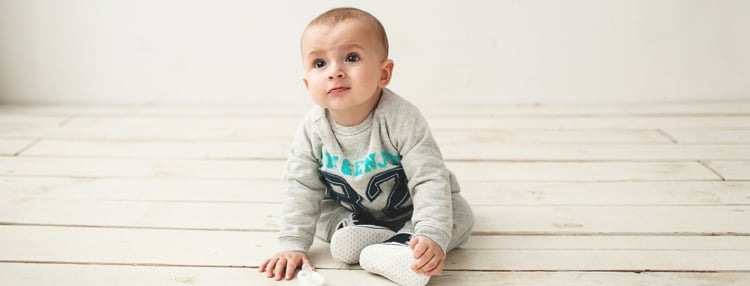Babies will no doubt get bumps, bruises, and scrapes as they learn to sit, crawl, stand, climb, walk, and run. It's important to be aware of safety issues in and around your baby's environment to prevent injuries. If your baby gets a bump on the head, it's helpful to know what to look for and be aware of the medical signs of a more serious injury.
-
Tracking cycle
-
Getting pregnant
-
Pregnancy
-
Help Center
-
Flo for Partners
-
Anonymous Mode
-
Flo app reviews
-
Flo Premium New
-
Secret Chats New
-
Symptom Checker New
-
Your cycle
-
Health 360°
-
Getting pregnant
-
Pregnancy
-
Being a mom
-
LGBTQ+
-
Quizzes
-
Ovulation calculator
-
hCG calculator
-
Pregnancy test calculator
-
Menstrual cycle calculator
-
Period calculator
-
Implantation calculator
-
Pregnancy weeks to months calculator
-
Pregnancy due date calculator
-
IVF and FET due date calculator
-
Due date calculator by ultrasound
-
Medical Affairs
-
Science & Research
-
Pass It On Project New
-
Privacy Portal
-
Press Center
-
Flo Accuracy
-
Careers
-
Contact Us
Baby Banging Head on Walls or Floor: What Should You Do?


Every piece of content at Flo Health adheres to the highest editorial standards for language, style, and medical accuracy. To learn what we do to deliver the best health and lifestyle insights to you, check out our content review principles.
The signs of head trauma in babies are loss of consciousness, drowsiness, dizziness, confusion, vomiting, irritability, and clear or bloody drainage from their nose, mouth, or ears. These are clear signs to seek medical help to avoid bigger problems.
There are also times when your baby is banging their head on purpose, though. These behaviors may or may not require more attention or observation.
When do babies start banging their head?
The odd behavior of baby headbanging can start as early as 5 to 6 months old and continue into early childhood. Most children grow out of the need to bang their head on walls and floors by the time they are approaching elementary school. Babies typically start this behavior when they can sit on their own, rocking back and forth and banging their head as they go.
Why do babies bang their heads?
According to the National Sleep Foundation, baby headbanging is soothing to some babies as they fall asleep. Other experts suggest that this behavior may be a sign that your baby is not feeling well and can increase when they have a cold, allergies, or an ear infection.
It can be difficult to watch your baby hitting their head, but rest assured that this behavior is usually harmless. This rhythmic and repetitive movement can help them nod off. It is something that they will likely outgrow, and no intervention is usually needed.
How to react if your baby is hitting their head against the wall
Your baby is most likely to hit their head against the wall when they are in bed. If the noise is disturbing other family members, you can move your baby's bed away from the wall to decrease the sound. Babies usually aren't hurting themselves with this activity.
If your baby is banging their head to self-soothe, you can help by providing soothing activities before naps or nighttime. Otherwise, there's little you can do to discourage this behavior. Some calming activities include giving them a warm bath, playing quiet music while they eat, rocking them, or singing a lullaby to provide comfort.
If this behavior continues as your child is entering school, it may be a symptom of a neurological or developmental disorder. Your pediatrician or a pediatric specialist can help in this case.
What should you do if your baby is banging their head on the floor?

When babies bang their head on the floor, it can be an expression of frustration or anger — a temper tantrum. They will soon learn on their own that banging their head on the floor doesn't feel good and doesn't get the reaction they want. If your baby's headbanging causes injury to themselves (self-injurious behavior), increases in frequency, or continues into school-aged children, it may be a symptom of a neurological or developmental disorder. Contact your pediatrician if you have concerns.
There are many things that babies do that seem odd or strange as they grow and experience new things. Headbanging is not unusual, and in many cases, there's not much you can do to stop it. It is one behavior that most experts agree parents can do little about. In time, your baby will learn better coping skills to comfort themselves as they go to sleep or deal with emotional stress. The best thing you can do for your child is to be nurturing, supportive, and protect them from harm whenever possible.
Take a quiz
Find out what you can do with our Health Assistant


Hey, I'm Anique
I started using Flo app to track my period and ovulation because we wanted to have a baby.


The Flo app helped me learn about my body and spot ovulation signs during our conception journey.


I vividly
remember the day
that we switched
Flo into
Pregnancy Mode — it was
such a special
moment.
Real stories, real results
Learn how the Flo app became an amazing cheerleader for us on our conception journey.




